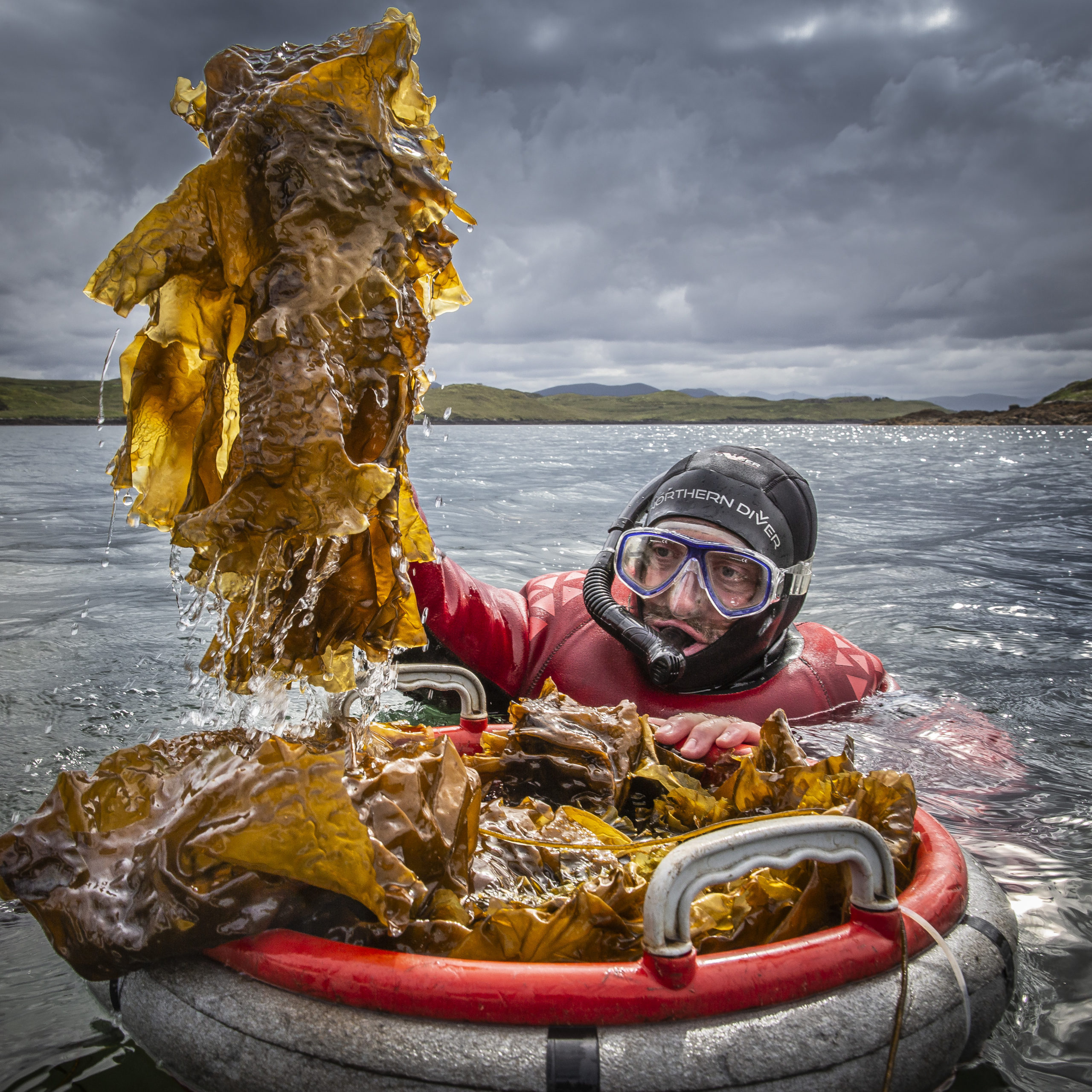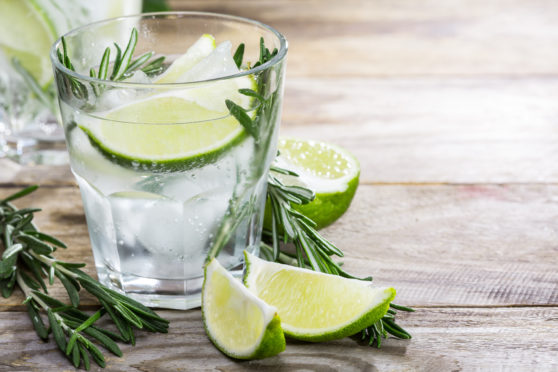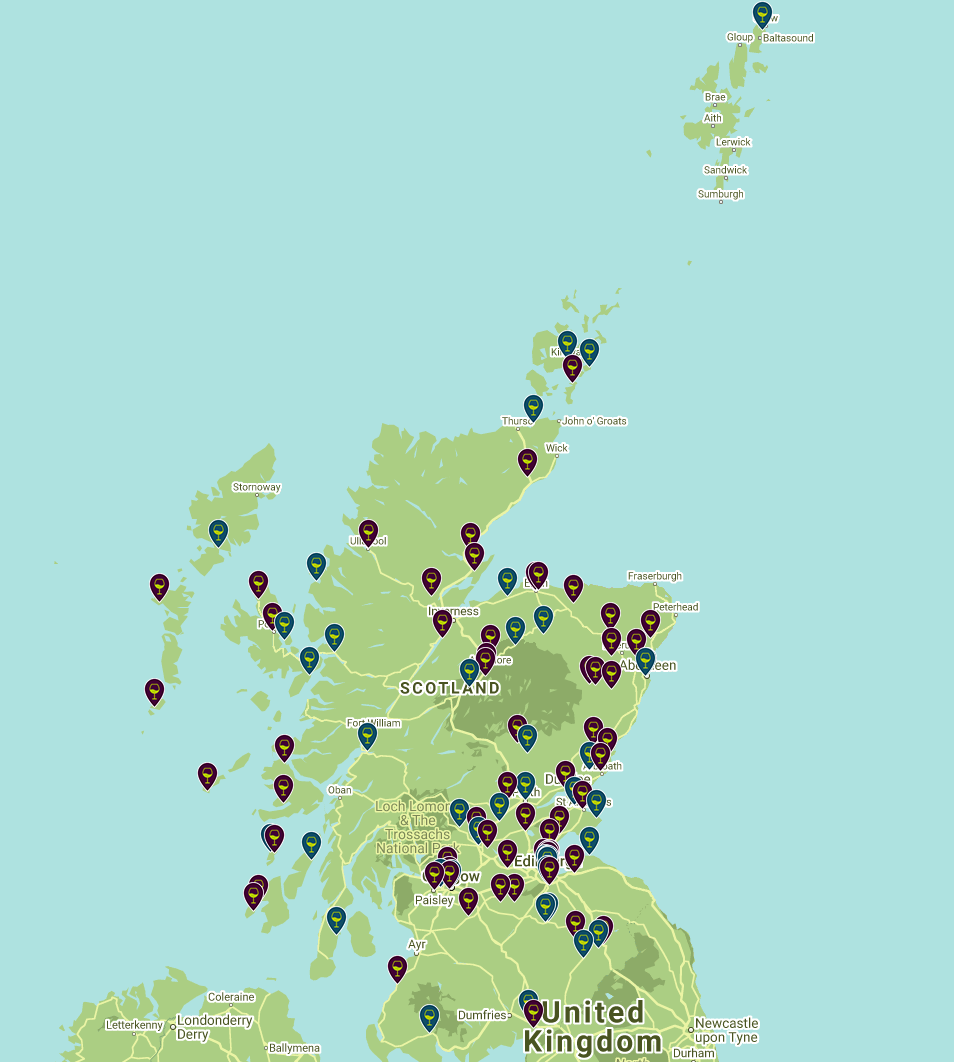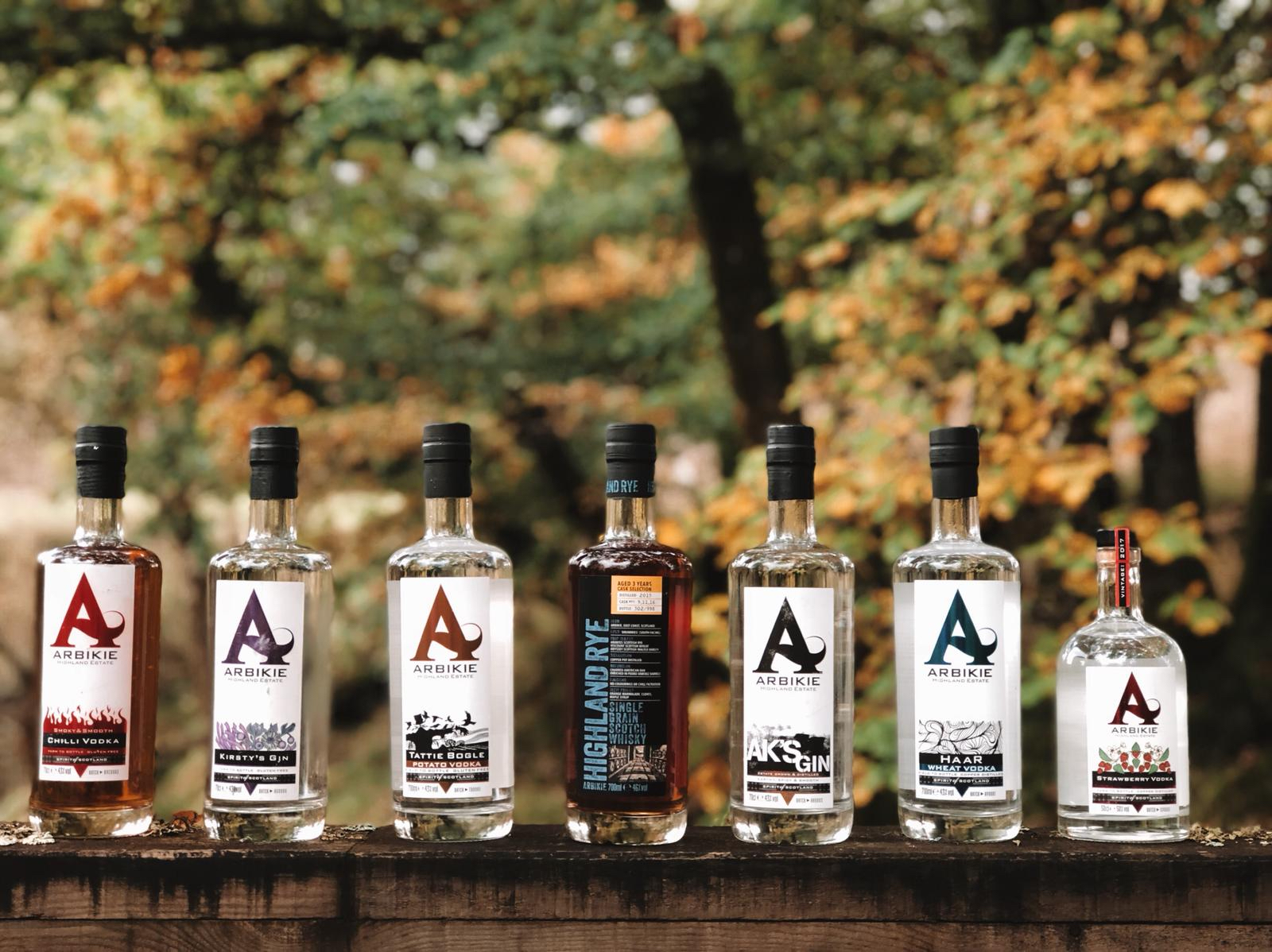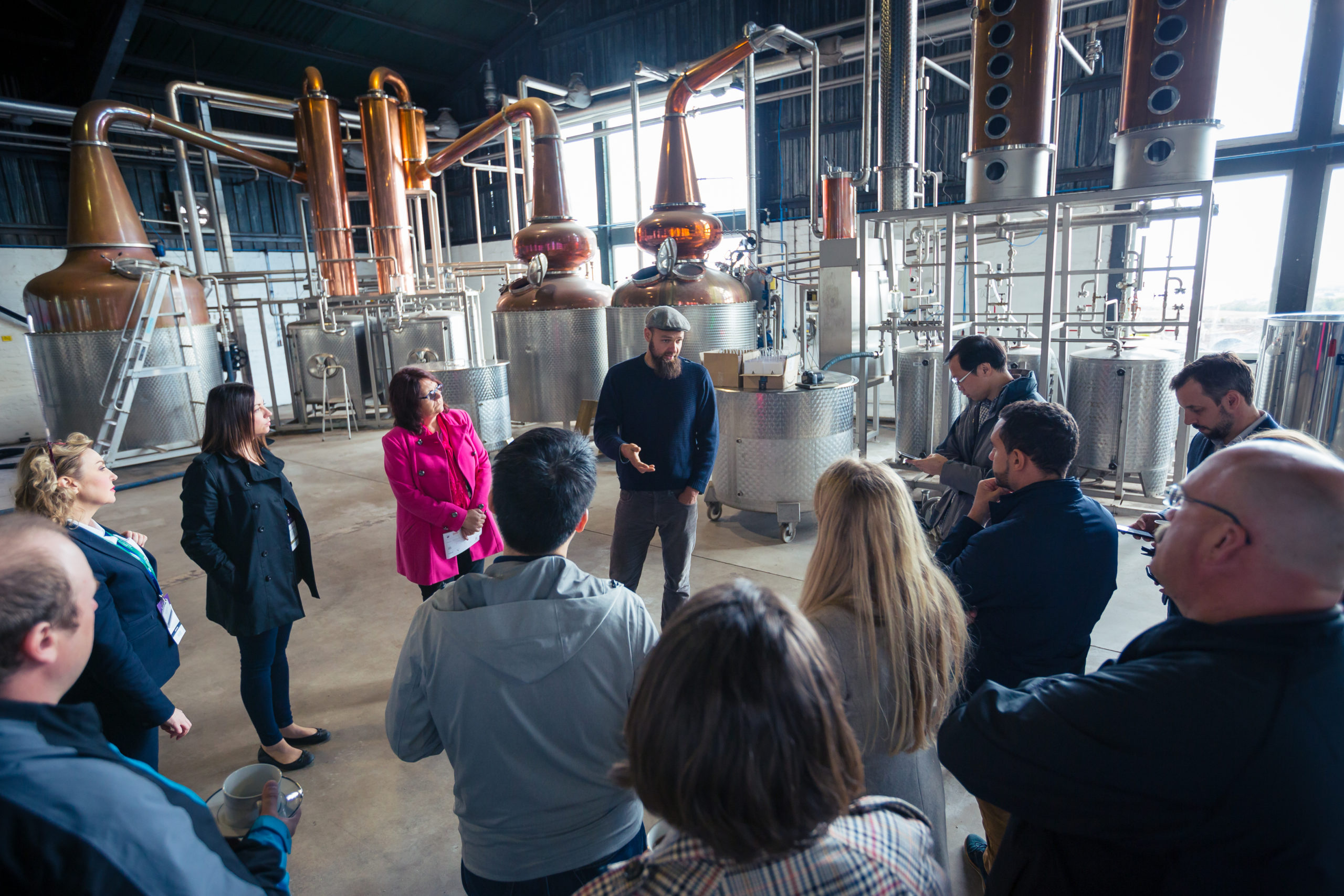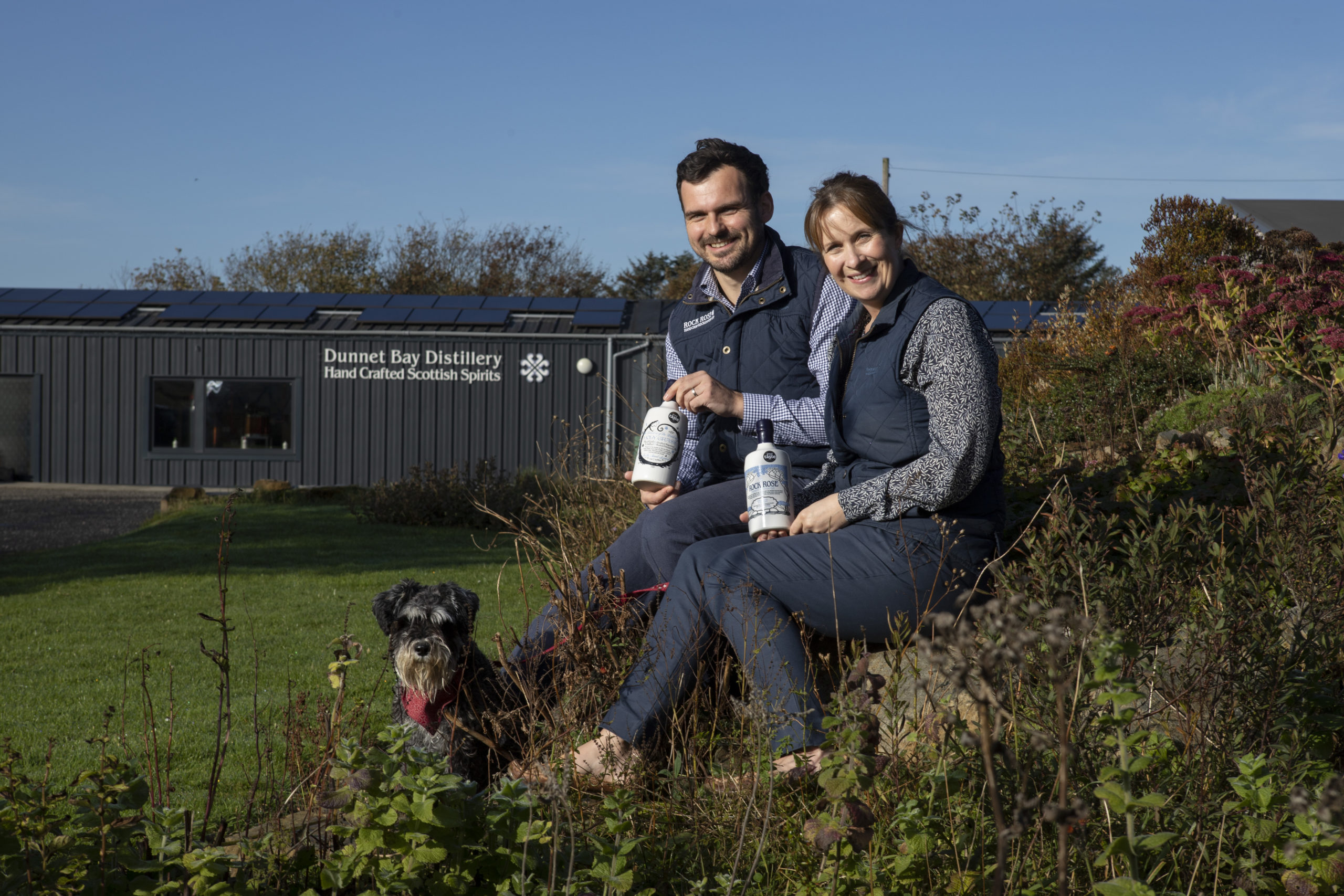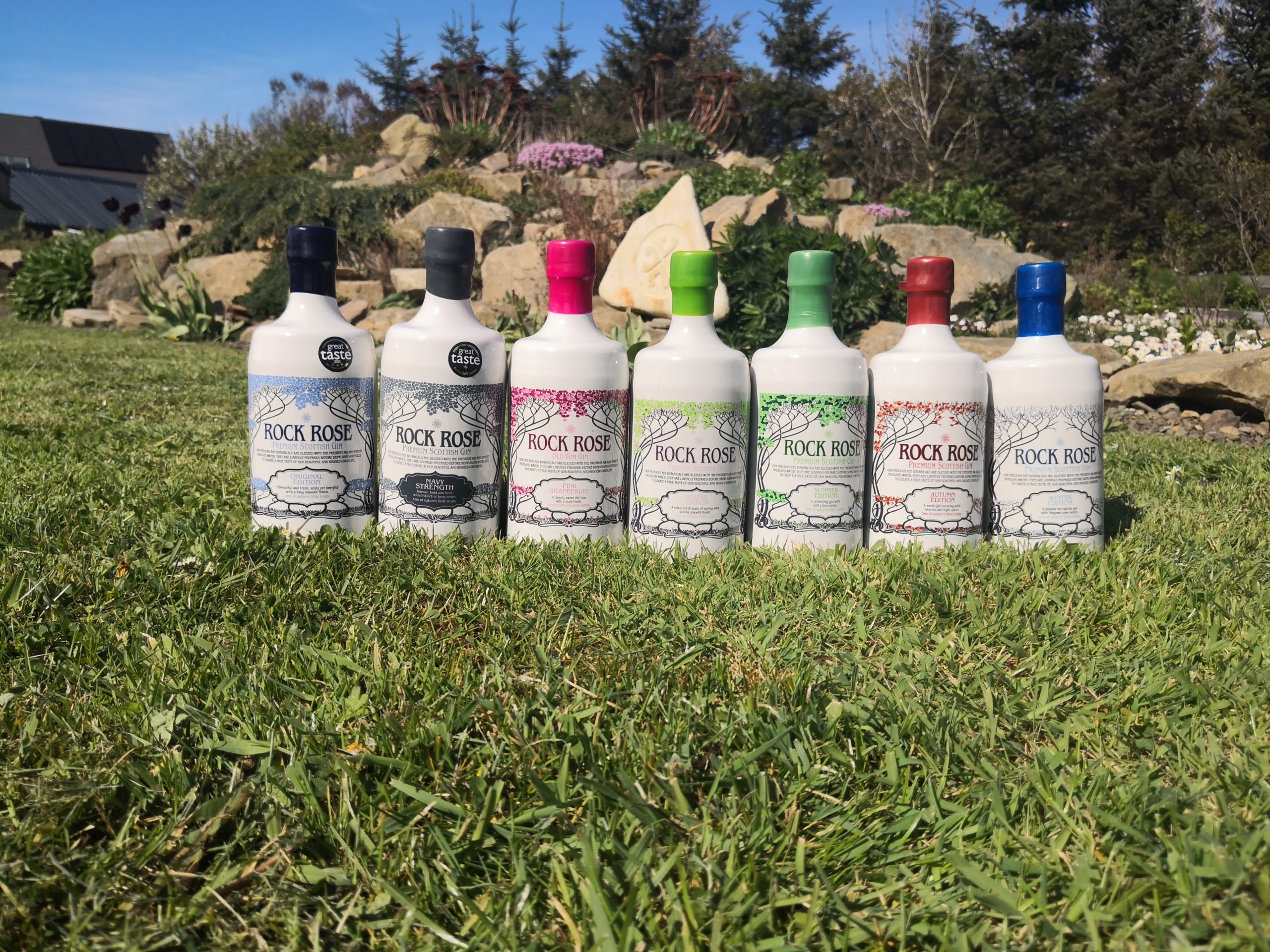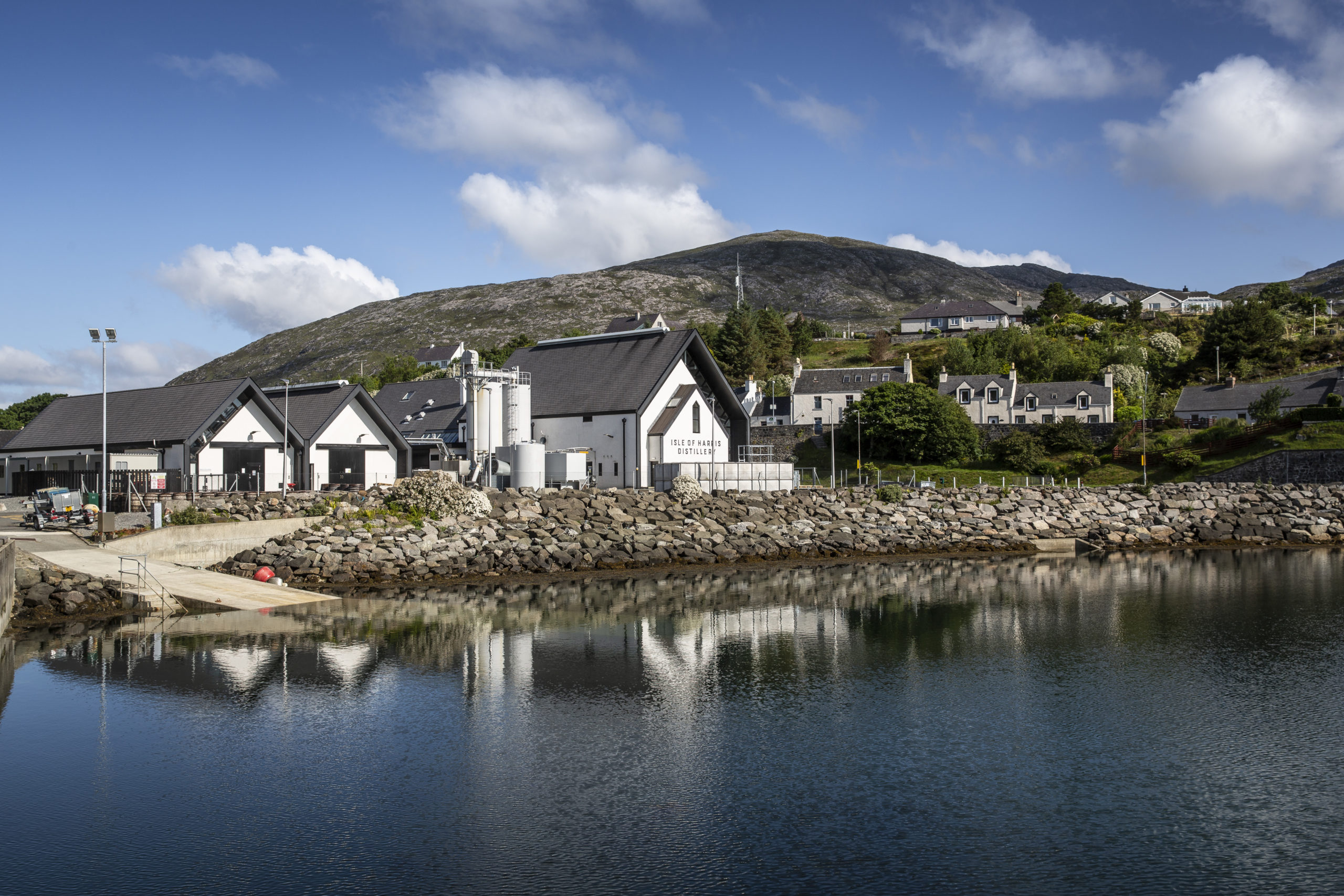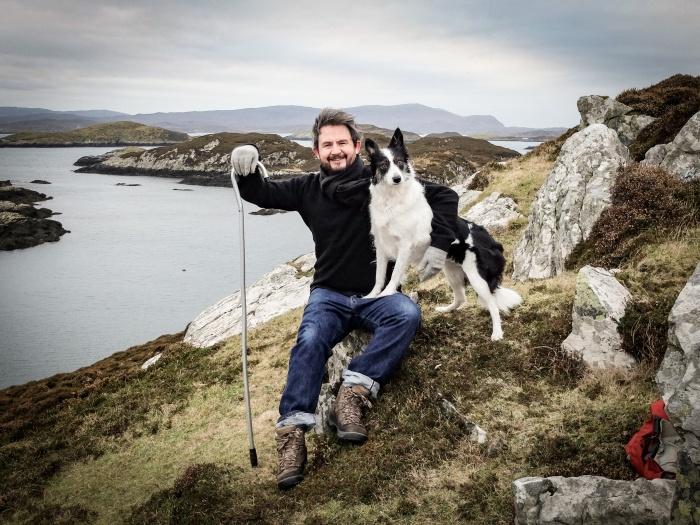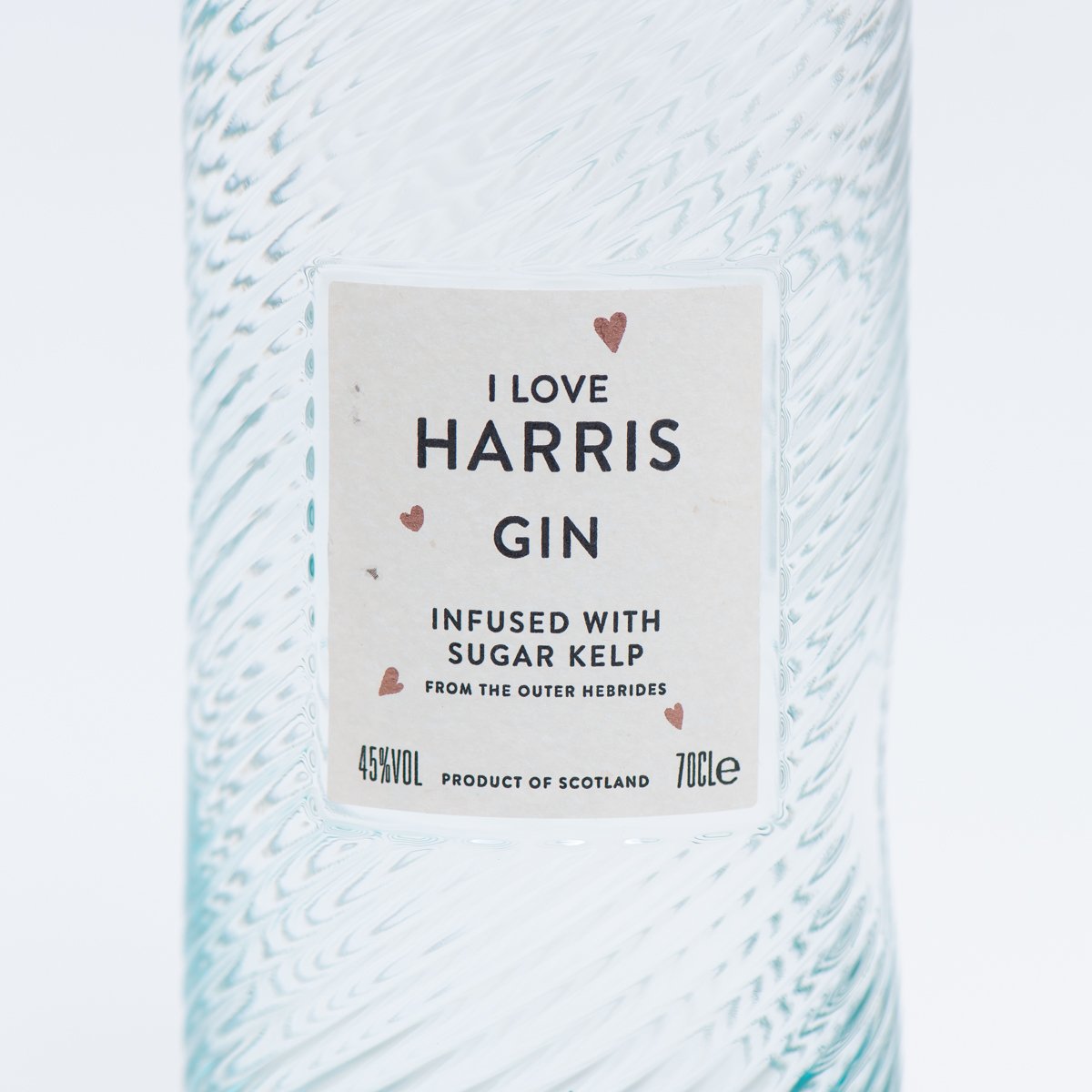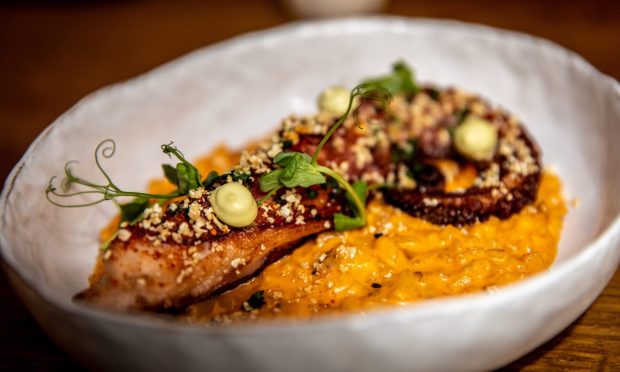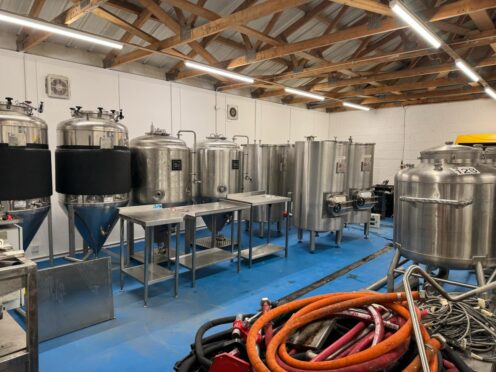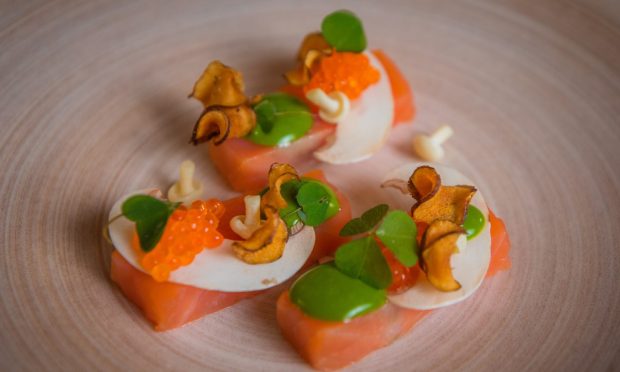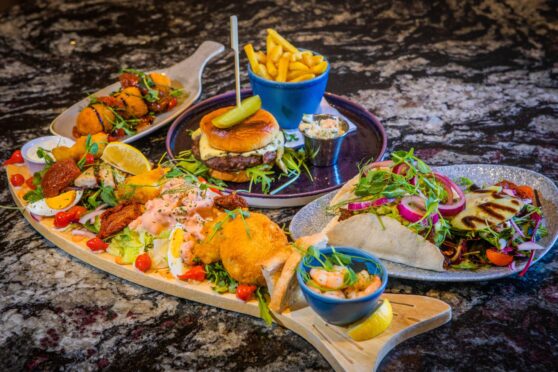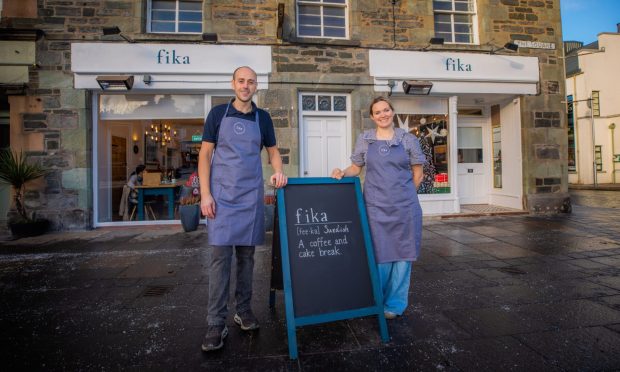Scottish gin has seen a phenomenal boom over the past decade, but what’s next for this ever-trending spirit? Julia Bryce finds out more…
Just 20 years ago only two Scottish gin distilleries existed. Fast forward to today and you will find more than 60 throughout the country, with more expected to follow shortly.
With the rise in those producing gin, there’s also been a huge increase in the number of brands hitting the shelves of local bottle shops and supermarkets. From contract distilled gins to those churning out regular releases including new flavours, colours and strengths, competition for market space and customers has never been stronger.
The global celebration World Gin Day takes place tomorrow (June 13) which will see the juniper-spirit fans across the world toast the occasion with a tipple. While many would have usually been attending festivals and tastings, the day will be filled with virtual experiences as a result of lockdown restrictions.
According to Scotland Food & Drink figures, the value of gin exported overseas from Scotland has been calculated at more then £400m, and estimates suggest that the UK accounts for more than 60% of world gin manufacture.
An industry so important to Scotland’s food and drink sector, gin distillers have had to continuously adapt, especially during these uncharted times.
Based on the coast of Angus, family-owned Arbikie Distillery recently launched a world first, creating a climate positive gin, Nadar. Gaelic for ‘nature’ the gin has a carbon footprint of -1.54 kg CO2e per 700ml bottle.
Iain Stirling, commercial director of Arbikie Distillery, said sustainability and helping battle climate change was fundamentally important the brand.
He said: “Our new Nadar Gin is the world’s only ‘Climate Positive’ gin and was created after of years of research and development with the world-class James Hutton Institute and Abertay University with our master distiller, Kirsty Black.
“Nadar is distilled from peas and is at the forefront of fighting climate change and biodiversity loss. It is world-leading and helps to keep the Scottish gin industry ahead of the global curve by producing a gin that helps to preserve the planet.

“At Arbikie Distillery, we want to be one of the world’s most sustainable distilleries hence our field-to-bottle approach to all of our family of spirits. We grow all of the crops we need to distil; barley, potatoes, peas or wheat, and botanicals such as lemongrass and limes, as well as juniper for distilling our gins. We distil the world’s only Rye Scotch Whisky, Highland Rye using Arantes Rye grown on our farms. It’s the first Rye Whisky distilled in Scotland for nearly 200 years, so we are helping to revive an ancient product from Scotch Whisky history, too.”

Hoping to reveal their new visitor experience later this year, Iain is determined to ensure everything is in place to open safely once lockdown has been lifted.
He added: “We’re hoping to have it open by October. Our build has obviously been affected by lockdown, but we’re very much looking forward to welcoming visitors.
“We’re very excited by the opportunity to be able to show food and drink tourists how we grow, distil, mature and bottle our family of sustainable spirits at Arbikie Farm. It adds a key jigsaw piece to our drinks business which we have been growing for the last five years, where our discerning customers can at last see exactly how we craft our spirits from planting and sowing, to harvesting, distilling, casking and bottling.
“We’re very accessible for domestic tourists, as well as the many overseas visitors that would like to come and see first-hand how and what we do here.
“The future is bright for the Scottish gin industry as Scotland produces 70% of UK gin and the demand for gin across the world continues to rise. We’ll all have to adjust to the ‘new normal’ but need to focus on the many opportunities that appear for us all. Consumers are becoming more interested in how their gins are distilled and from what, so the industry will need to follow this trend of traceability to ensure consumers continue to buy Scottish gins.”
The Scottish Distillers Association estimates that some 70-80% of UK produced gin comes from Scotland and that there are more than 60 Scottish distilleries producing gin, generating over 140 different gin brands.
Headed up by husband and wife team Martin and Claire Murray, Dunnet Bay Distillers in the Highlands is another brand focusing on sustainability by launching refillable gin pouches.
Claire said: “Our pouches are proving very popular. We launched them last September but since lockdown people have gone crazy for them. We had them on a bundle offer and poor Martin could hardly keep up. Luckily we purchased a new pouch-filling machine just before lockdown and Martin has managed to get it working. Otherwise he would have been working through the night to get the orders fulfilled.
“Sustainability is really important to us. We love our bottles but sadly there is not the same service for recycling them as there is for glass, therefore we wanted to do something that created a ‘Bottle for Life’. We were 100% determined the pouches had to be fully recyclable. All the customer needs to do is pop it in the postbox, no stamp or envelope, and we take care of the rest. We worked hard with Royal Mail to be able to achieve that.
“We are really trying to be a greener company. We have solar panels on our roof which have generated more energy than we have consumed, we have an electric vehicle, our cleaning products are eco-friendly, we give away our cardboard locally for people to use as weed matting and we offer a refill service at the distillery. We are trying hard to reduce one-time plastic, too.”
Experiencing a 600% increase in online sales in comparison to this time last year, Dunnet Bay Distillers have also managed to secure international deals including one in Australia, even while the country is in lockdown.
She added: “Demand is certainly there online. Our online sales have grown exponentially and our Amazon sales have really rocketed. We have still supplied to Sainsbury’s but because we deal with a distributor we haven’t heard much from independent bottle shops.
“Australia has had a great interest. More and more of our normal export markets are now getting back in contact with us to get stocks in again. We have just sent orders to Italy, Australia, Thailand and Malaysia. We now export to 21 countries and hope to add Canada at the end of this month.”
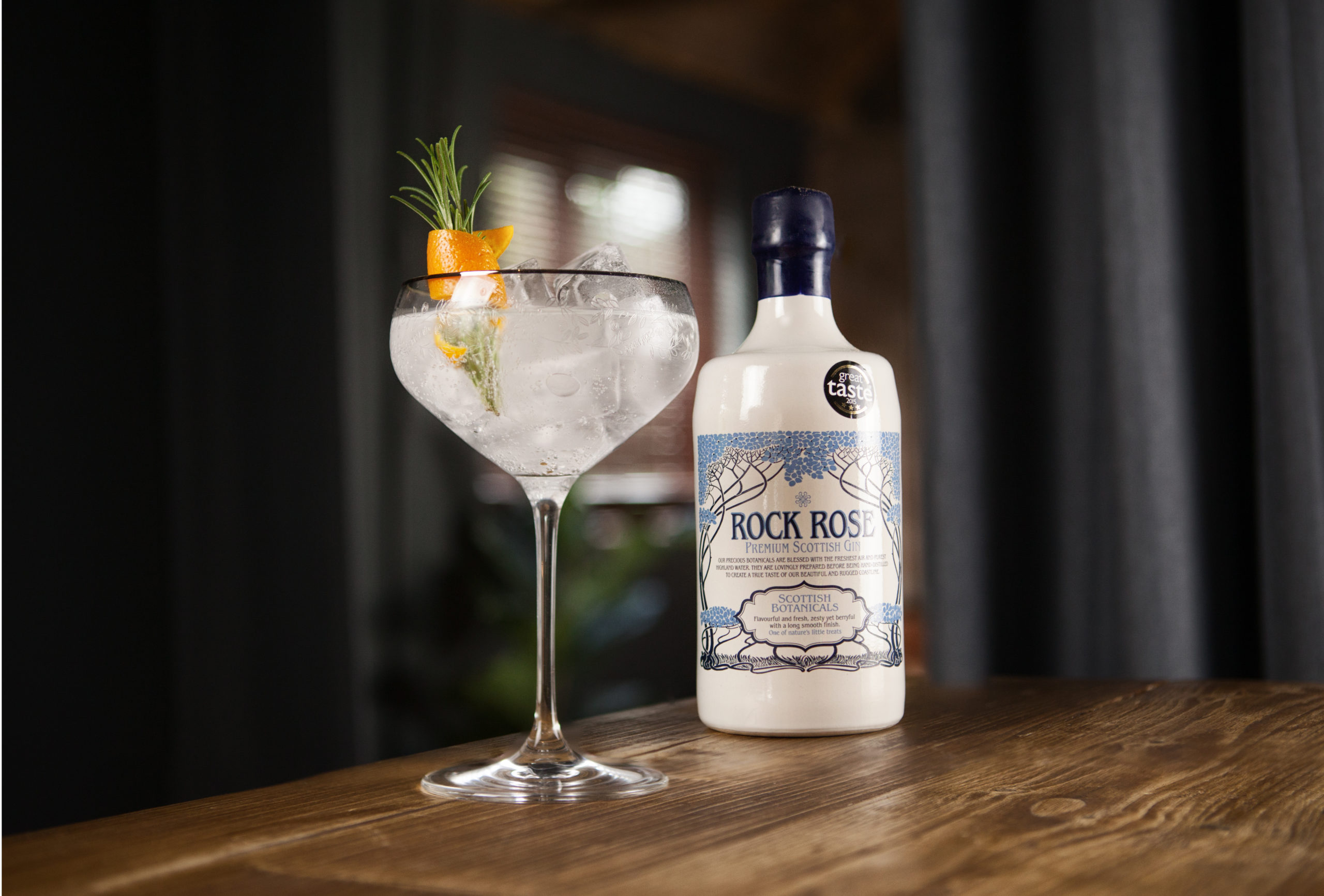
Tourism also plays a bit part at the Highlands distillery, which welcomes tourists and locals alike, all keen to learn more about the brands it is home to including Rock Rose Gin and Holy Grass Vodka.
“Tourism at the distillery will change. Once people are allowed and feel safe to travel we will be delighted to welcome them back. We miss seeing our visitors and turning them into lifelong gin fans. Normally by this time we would be in full swing and welcoming people every day.
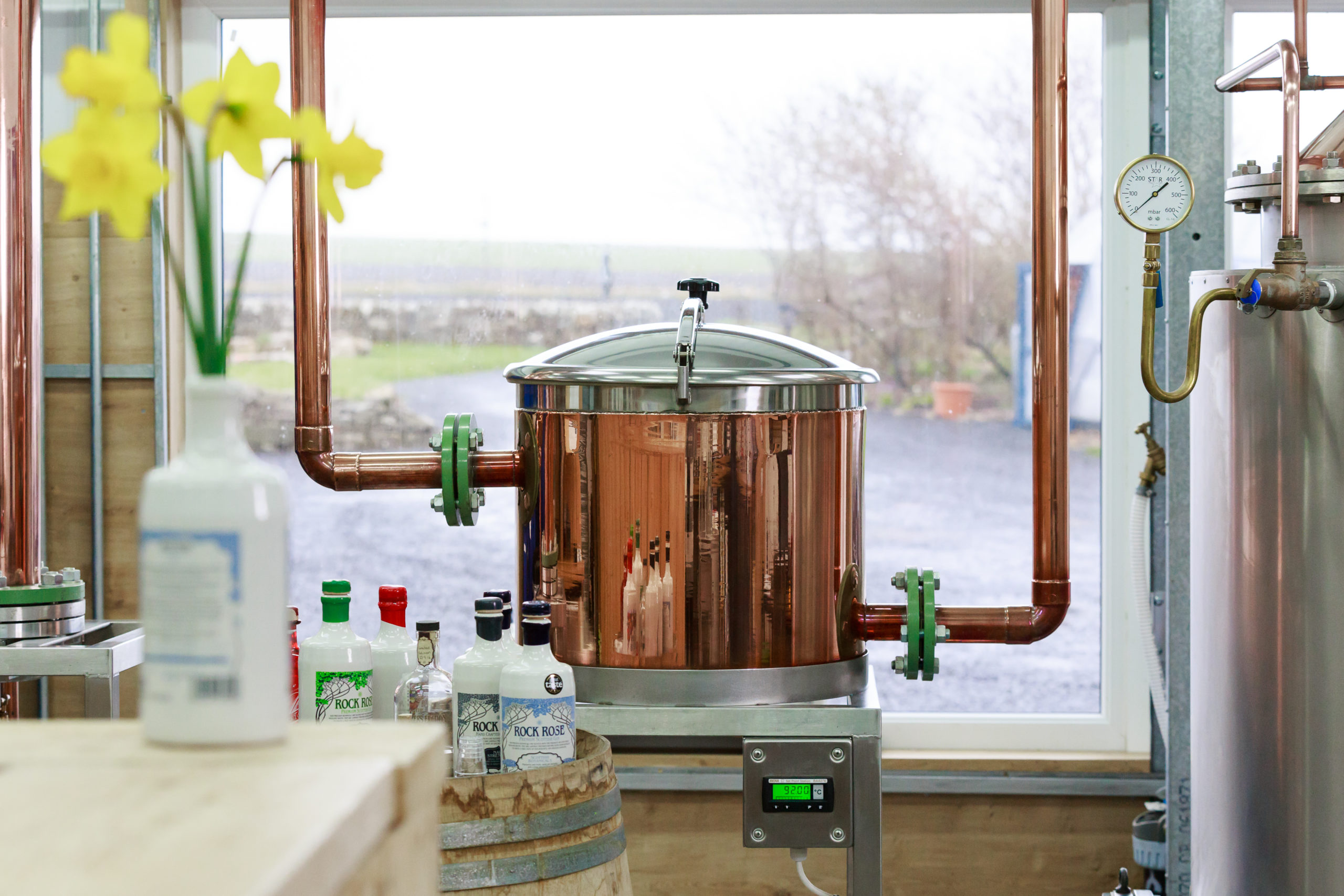
“We have been thinking very seriously and carefully about the safety of our staff, families and visitors going forward and are taking steps to protect them. Our tour format may change to accommodate this but it will only be for the better and we already have a really cool gift for our visitors to take away with them when they do come again.
“I think the interest for Scottish gin is most certainly still there, though it is going to be tougher as our economy suffers. I think we need to change how we interact with customers as there will be no large-scale tasting events, we’ll need to find different ways to reach new people. We are missing our team and we look forward to their safe return soon.”
Over on the Isle of Harris, tourism has come to a halt due to lockdown, with thousands usually flocking to the island to enjoy its rich larder and world-class food and drink experiences.
Mike Donald, chief storyteller at Isle of Harris Distillers, says the brand is continuously adapting to the situation, trying to adapt in new ways to bring the Harris Distillers experience into customers’ homes.
He said: “Like everyone else right now, it is ‘business as unusual’ as we adapt to the ever-changing situation. Normally, our doors would be open to the public, our peat fire would be burning, and we would be welcoming thousands of visitors to our social distillery. But the island remains under lockdown with air and ferry travel heavily restricted, so the only work here in Tarbert is behind the scenes and with safety always to the fore. We have a small team helping to meet local hand sanitiser needs as well as ship orders of Isle of Harris Gin to customers across the UK and beyond. Others are working from home and all our public-facing staff are currently furloughed.
“It is unclear if and when the annual influx of tourists will appear this year. We had plans for a socially-distanced version of our regular tours in place before the crisis took hold and could likely bring that into play again after considering up-to-the-minute guidelines. Meantime, we have been experimenting with virtual tours with some of our international partners which has gone down very well so there are interesting alternatives if folk cannot be with us here in person.”
With tourism a huge player in the island’s community, Mike is hopeful that booking a staycation in the area or a Hebridean holiday will be on a lot of people’s post-lockdown bucket lists.
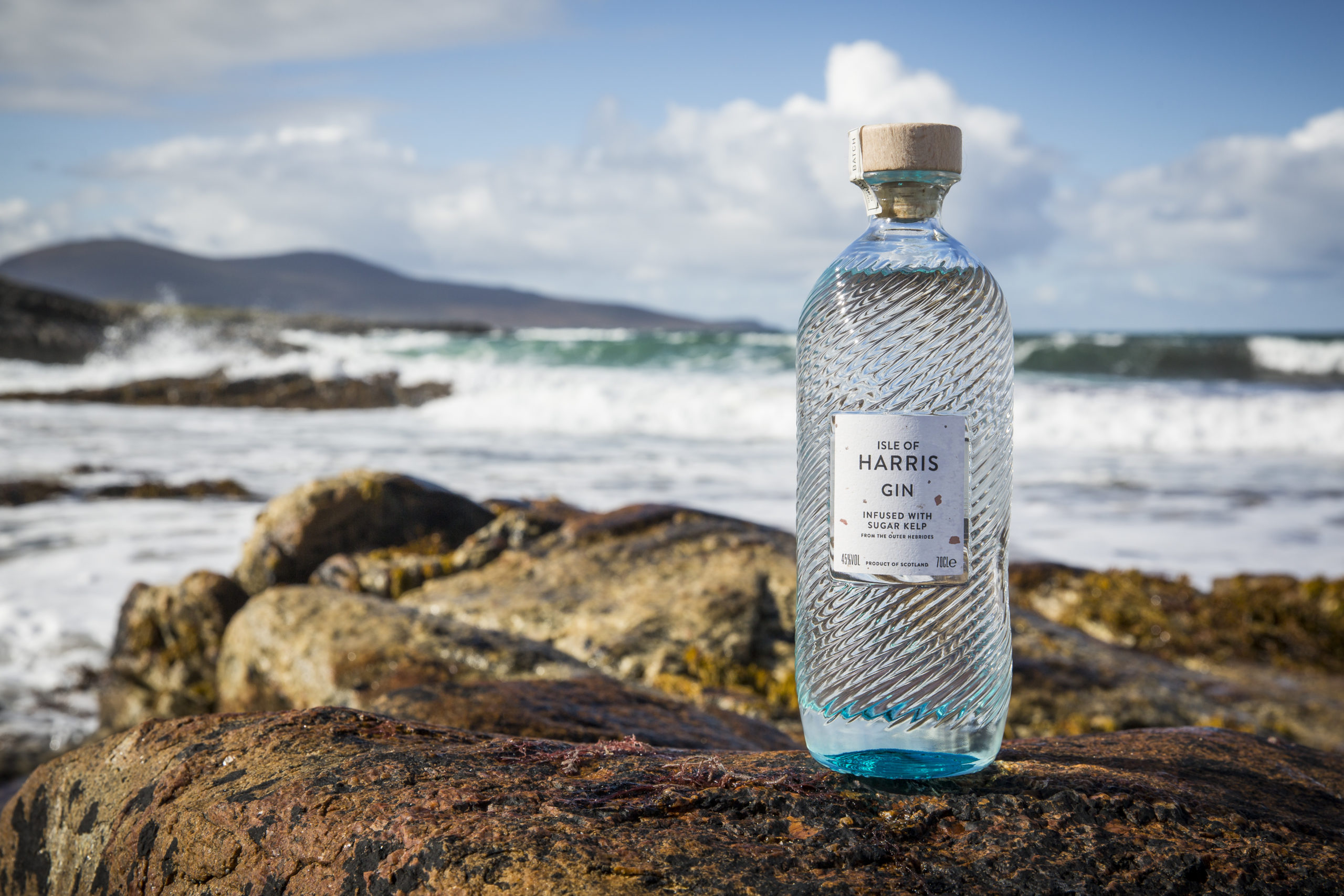
He added: “It is difficult to predict anything right now but most tourist businesses here are braced for the worst. Much will depend on government advice and to what extent travel restrictions will be lifted obviously. From our point of view, the distillery will ride out the storm, but we will obviously miss the social aspect of distillery life and welcoming new people through our doors in their thousands. What the impact will be on the other local businesses remains to be seen. It will be very tough for most. Hopefully, next summer will see a ‘staycation come-back’, as people appreciate more than ever the peace and quiet of a Hebridean holiday.”
But Isle of Harris gin is weathering the lockdown storm, finding new ways.
The firm has also launched a new special edition ‘I Love Harris Gin‘ to help raise funds for the NHS Covid-19 Urgent Appeal and is donating 10% of each order to NHS Charities Together.
“We’ve always sold Isle of Harris gin exclusively online, so we’ve been well placed to meet these changes,” said Mike.
“From the moment the lockdown measures were formally announced we saw a noticeable increase in online orders that hasn’t changed to date. Our gift sets remain popular and we’ve been handwriting lots of nice messages as friends and family try to remain connected to each other by sharing our island spirit. Sadly, our sales to the hospitality trade have come to a halt as our friends in bars and restaurants have been forced to close their doors, too.
“Our international exports continue to be buoyant and we’ve kept busy on that front, even opening new markets, including Russia, eastern Canada and Singapore. Each country is at different stages in their outbreak response so the picture in each place varies. In places like Japan, Mexico, and Italy where gin is drunk mainly in bars, business has all but stopped, but deliveries of Isle of Harris Gin to Canada, northern Europe and Australia continue to be warmly received by our far-flung partners.”
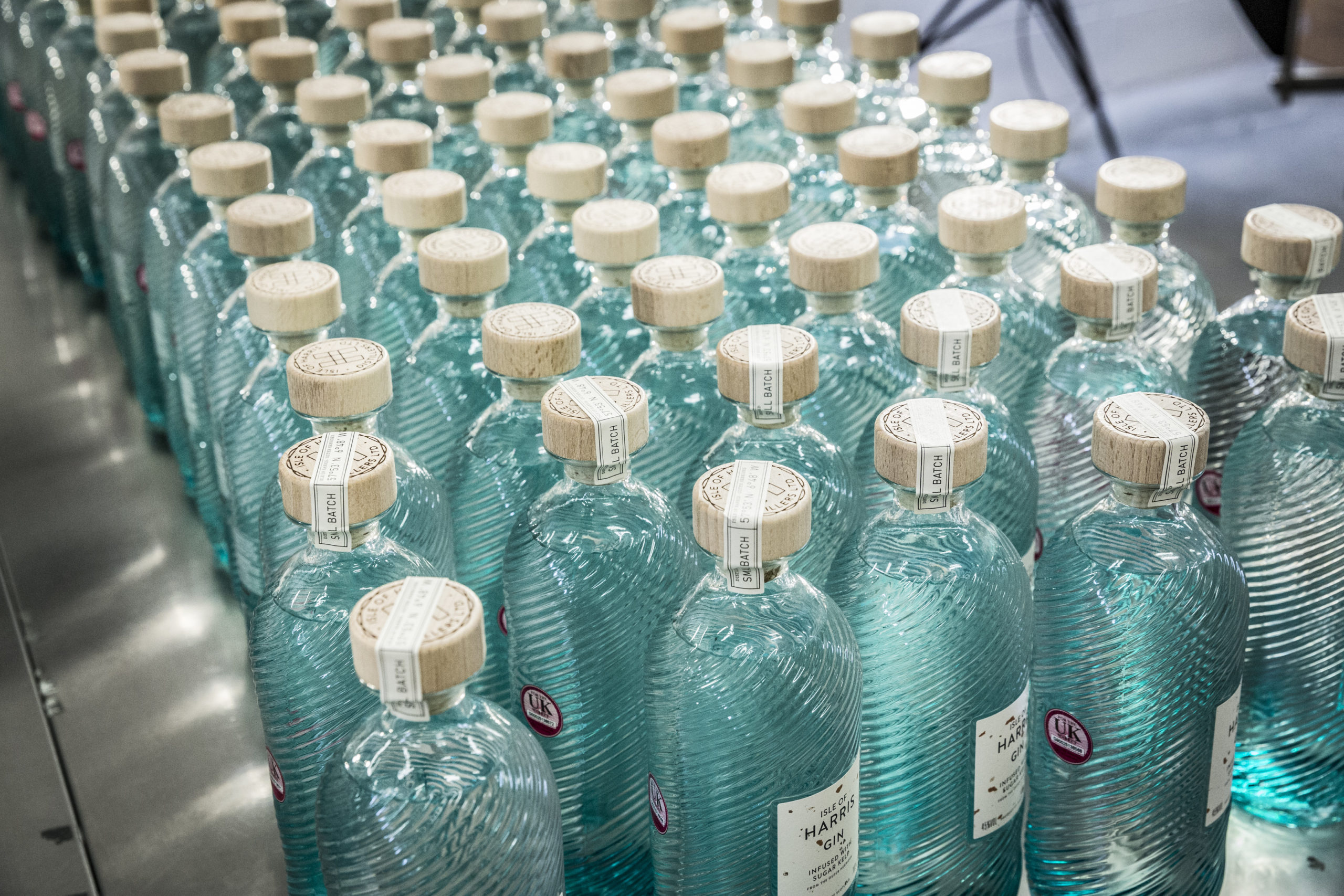
And although life after lockdown will come with many challenges for those working in the hospitality and food and drink tourism industries, Mike is positive the Scottish gin industry will survive.
He said: “Times will be tough, particularly for those who were struggling pre-crisis or relied heavily on their bar and restaurant business or visitor centres. But it is a creative and agile industry with many brand stories which will no doubt resonate with customers looking to support authentic, independent enterprises in the new normal.
“Having a strong online presence and a willingness to share even more of their work through social media platforms should help stand Scottish gin-makers in good stead. An international outlook is vital as we look to capitalise on opportunities as they arise in different countries.”
